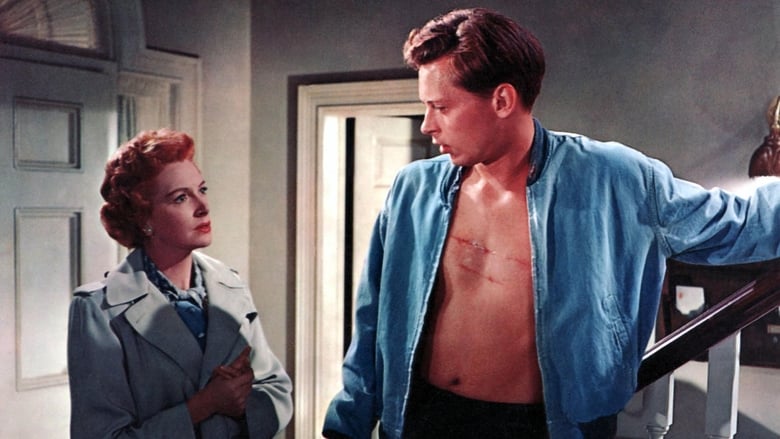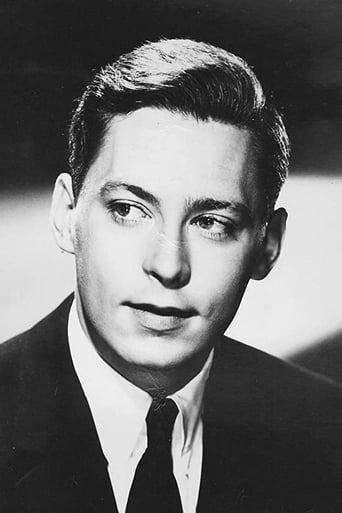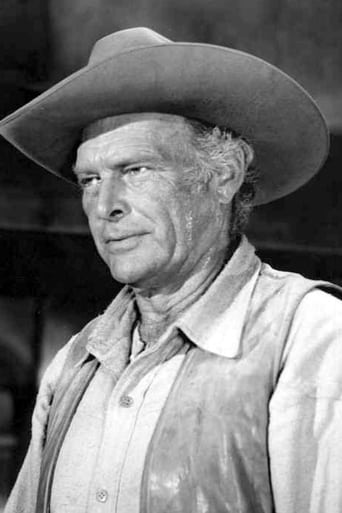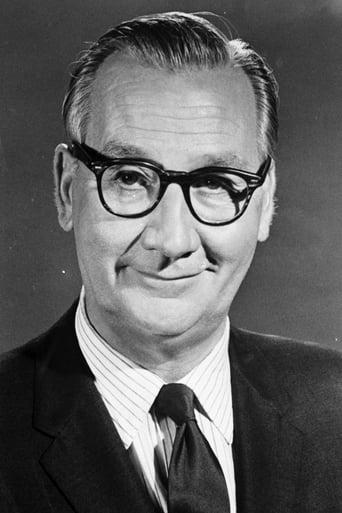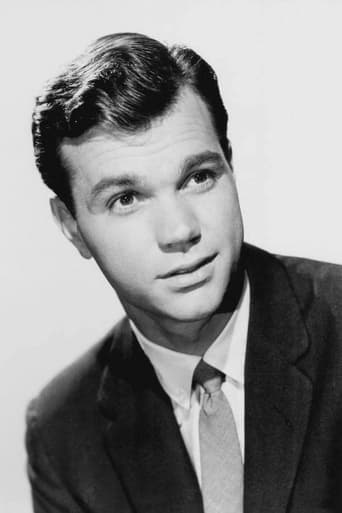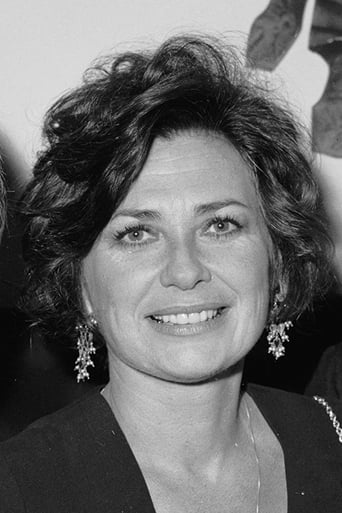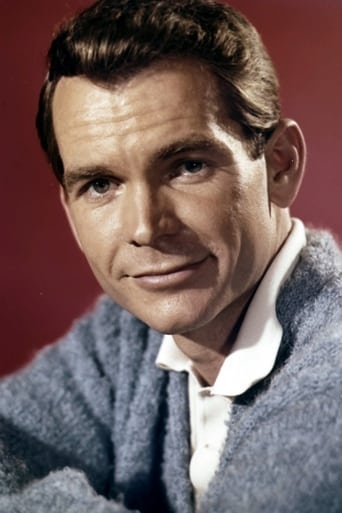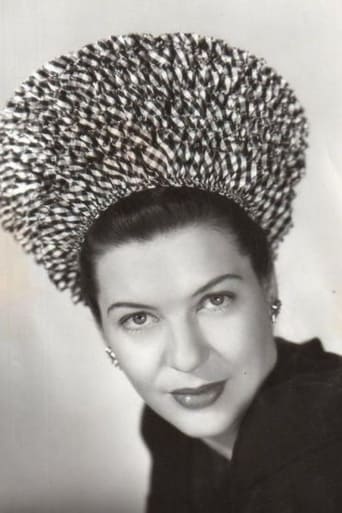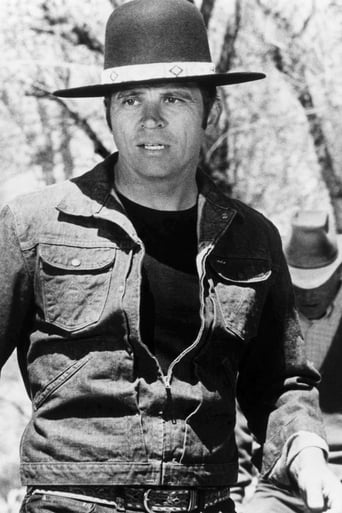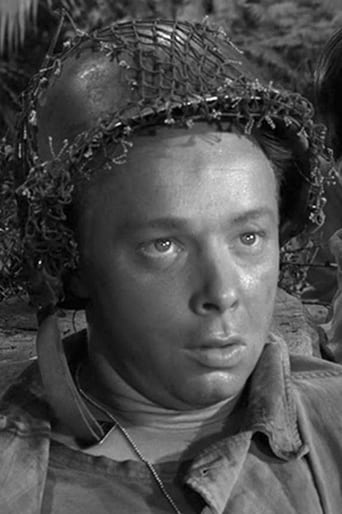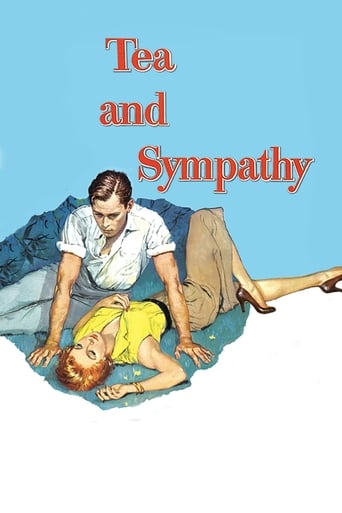
At a high school reunion, a middle-aged man recalls his boarding school days, when the only person who seemed to sympathize with him was his housemaster's wife.
Similar titles

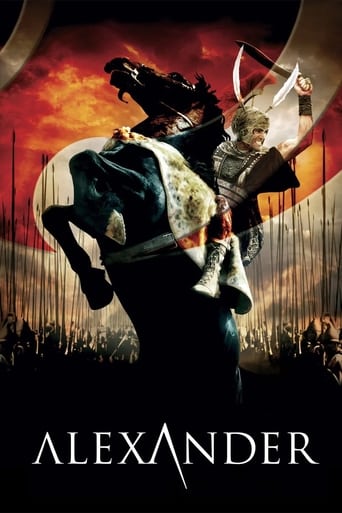
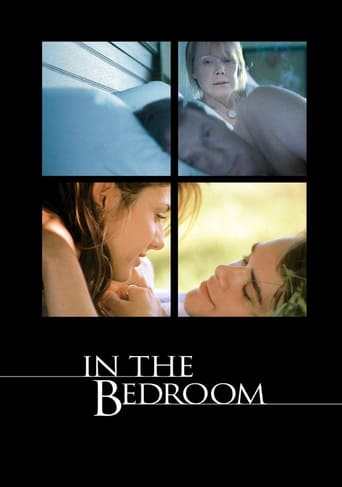

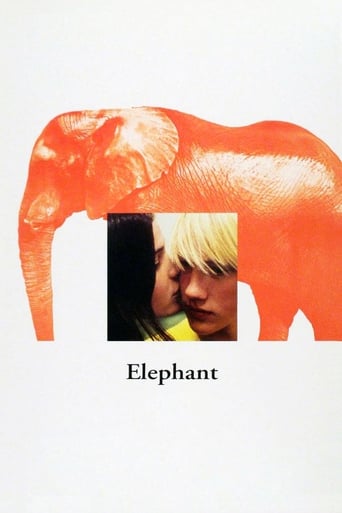

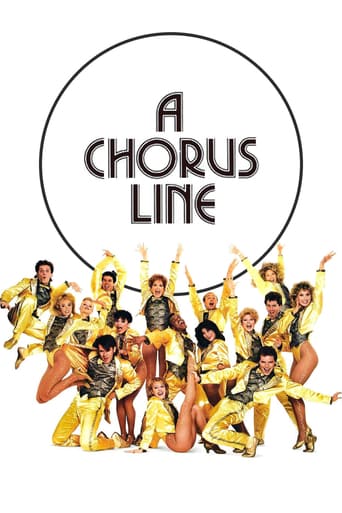
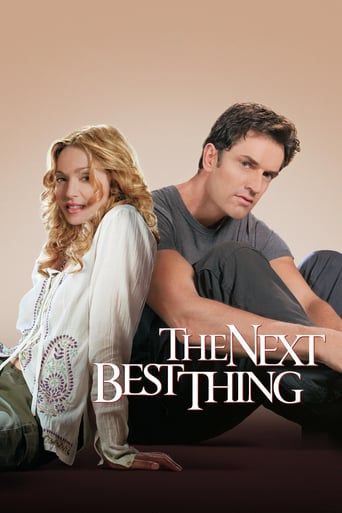
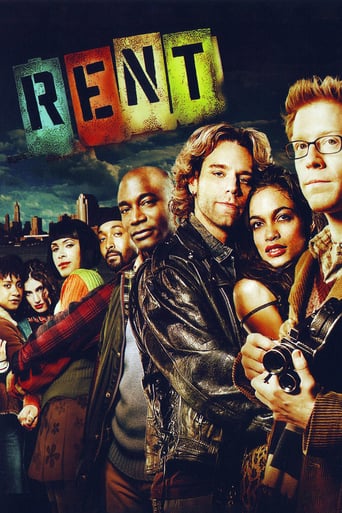
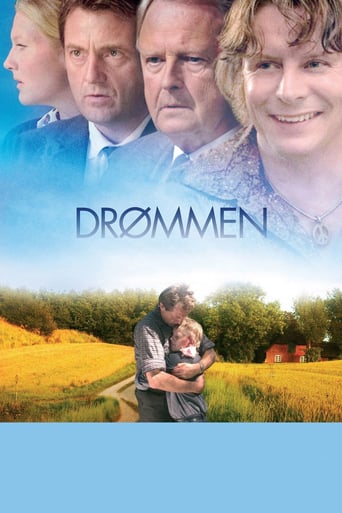
Reviews
If the ambition is to provide two hours of instantly forgettable, popcorn-munching escapism, it succeeds.
It’s fine. It's literally the definition of a fine movie. You’ve seen it before, you know every beat and outcome before the characters even do. Only question is how much escapism you’re looking for.
Very good movie overall, highly recommended. Most of the negative reviews don't have any merit and are all pollitically based. Give this movie a chance at least, and it might give you a different perspective.
I didn’t really have many expectations going into the movie (good or bad), but I actually really enjoyed it. I really liked the characters and the banter between them.
Vincente Minnelli's "message" movie TEA AND SYMPATHY is excellently crafted with Golden Hollywood poise, rehashed for the celluloid by Robert Anderson from his own stage play, it reunites the original play's three leads, Deborah Kerr, John Kerr (no, they're not related) and Lief Erickson. In spite of its antediluvian views on masculinity, the film appositely re-surfaces as a searing melodrama zinging at today's intolerant world, where egregious persecution is wantonly inflicted on minorities and non-conformists.Tommy Lee (John Kerr) is a 17-year-old prep school student, he is ostracised by his jock classmates who coin him a sobriquet "sister boy", why? Because of his curly hair, his gait, his sewing skill, his inclination of classical music over sport and roughhouse (he excels in tennis though), he reads Voltaire's CANDIDE and the fact that he has never bragged about girls. All these facile symptoms can be nimbly dismissed as specious by a more rational mind (even in its time), like Tommy's roommate Al (Hickman), who always stands up for him but the real helping hand comes from Laura Reynolds (Deborah Kerr), wife of Tommy's macho coach Bill (Erickson), who is transparently not in line with his wife's sympathy over Tom. The title refers to the common "interested bystander" stance which Laura is advised to take being a woman in her position - "doesn't go beyond giving him tea and sympathy on Sunday afternoons".Bearing mockeries and mobbing from his peers, contempt and grudge from coach Bill and mounting pressures from his father Herb (Andrews), Tommy starts to unravel in spite of Laura's intransigent support and growing affection, in a last-resort attempt to prove his manhood, he arranges a rendezvous with the local loose girl Ellie (Crane, a chain-smoking waitress depicted with a broad and vulgar stroke), Laura overhears it and in her last-resort attempt to pre-empt a disastrous wind-up, she puts on her fancy blue dress and manoeuvres a tête-à-tête to procrastinate Tommy's action, during which she discloses the death of her late first husband, who died young just because he was trying to prove something that he needn't proving, so as to convince Tommy that he shouldn't follow the same old road to ruin. Here, Laura's motivation has been cogently vindicated, she has been a victim of the bigotry and prejudice of the rank masculine and patriarch society, so how can she just sits and doles out her tea and sympathy?Nevertheless, Laura doesn't stop the disaster since she backs off from Tommy's desperate advances which later she regrets, also because obviously, the story needs something more dramatic to grab the attention and up the ante, yet, the movie is cleverly introduced through the lyrical recollections of Tommy a decade later in a classmate reunion, so Minelli assures audience in the very beginning that Tommy comes safe and sound out of his trials and tribulations unjustly cast upon him. In the beautifully arranged woodland scene, as if in a dreamlike fairy land, Laura comforts a distraught Tommy who has survived a suicidal attempt, with her kiss, the purest and tenderest kiss from a woman to a sensitive young man on the cusp of adulthood and whose nature is in the danger of being cruelly oppressed, even not being typecast as a nun, Ms. Kerr's Laura continues carrying out the name star's holy mission to save lives. There is gratitude in that kiss too, through Tommy's predicament, Laura finally can face up the marital hurdles between her and Bill under the surface of superficial harmony and make a right decision for her own sake.John Kerr is another young talent whose acting career failed to launch after a promising start, he fleshes out Tommy's vulnerability, sensitivity and perplexity, but righteously opts not to emphasise on queer mannerism, in fact, he is fairly attractive as an object of desirable for girls (and boys too, of course), the trenchant irony is just self-evident when Al tries to correct Tommy's unorthodox walk, those accusations are so inadequate and ridiculous. Fault-finding can flourish on everything and anything, which soundly advices us to nurture a discerning eye in lieu of hastily jumping on the bandwagon. Character players Leif Erickson and Edward Andrews, the former lands a meaty supporting role as the narrow-minded coach, in every step, he manages to show beyond doubt that Bill is unworthy of Laura's merits, and possibly, he is a deep-closeted homosexual himself, Erickson's butch appearance holds sway in a ghastly dislikeable role; as for the latter, in his more nuanced brew of pleasantry and angst, Andrews comes out as a more assured propeller to push Tommy into the abyss.In retrospect, 1956 should have been Ms. Kerr's Oscar-reaping year, only if she were nominated for this film instead of the hyped pap THE KING AND I (1956), as much as I worship Ms. Ingrid Bergman, her Oscar-winning performance in ANASTASIA (1956) is no rival compared with Ms. Kerr's consummate cri-de-coeur against the omnipresent scourge lurking underneath every imperfect soul. Ms. Kerr is such a pioneering "queer" icon to be reckoned with, especially in view of a less liberal era, whose legacy and glamour need to rediscovered by younger LGBTQ generations, forever dignified, you can never sense a tint of condescension in her refined presence, and her Laura Reynolds, what a courageous woman and what a tour-de-force to witness!
Imagine that there was a time where homosexuality was actually referred to as sister's boy. That's what we find in this interesting 1956 film.John Kerr, who passed away this month at 81, was always at his best in his rather brief career, when he was vulnerable and subject to the taunts of other. We would see this again the following year when Kerr starred in Rogers and Hammerstein's "South Pacific."Unable to fit in with the school he is attending, he finds solace in the hands of the schoolmaster's wife, so ably played by Deborah Kerr, at her usual whining best.Look for Norma Crane here as the chain-smoking prostitute. Crane, born Anna-Bella Zuckerman, in real life was quite a versatile actress. 15 years after this film, she would play Golda, Tevye's wife in that magnificent 1971 film-"Fiddler on the Roof."As for "Tea and Sympathy," it's still another example of how homosexuality was viewed by a society.
The story can be interpreted in multiple ways, and that is exactly the nature of the closet. Knowing that, the best interpretation becomes clear.Understanding this film today is a bit easier, because we have so many examples all around us of the effects of homophobia/transphobia, and the false protection of the closet.From Larry Craig to Ted Haggard to Roy Ashburn to Jim McGreevy, the papers are full of a parade of "opposite-married" homosexuals, who thought that love or at least marriage or having children would suppress their natural desires, and the public's knowledge of them. Most of these men are also publicly anti-gay until being exposed as hypocrites.And similarly from Jaheem Herrera to Carl Joseph Walker-Hoover to Eric Mohat to Tyler Clementi to Seth Walsh to Asher Brown, and on and on, the obituaries are filled with younger kids now bullied to suicide for being, or for appearing to be, gay or trans. The openness around homosexuality has also made it easier to become a target.My interpretation of the film is that a neglected wife (married to a closet case herself) feels a predatory "cougar" attraction to a vulnerable young gay man not liked by many other people. Like everyone else in the film, she probably believes she can change him, and have a fling for herself at the same time. She loves him, but she also uses him. After they kiss, everything else is just glossed over, and we are left to fill in the details with our imaginations, and some narration.Although the scandal with Laura helped him (better to be "the other man" than gay, right?) and although Tom marries (a woman) to end the suspicion around him, he doesn't live a happy life. We never really see him with any woman after that. Like Bill, he remains alone, because he's never permitted to embrace his true desires.Interestingly, his name is Tom Robinson Lee. Tom Robinson is also the name of the bisexual singer of "Glad to be Gay".
Here we are in 2008, and the pendulum of sexual misunderstanding has swung both ways now, in a few generations. Once, homosexuality was despised. Now, increasingly, homosexuality is advocated as an enlightened preference. Propagating the human species is not a priority in what is perceived as an era of over-population. Besides, we have test tube babies today, and cloning people is probably already being practiced behind closed laboratory doors.What has remained the same in the past 40 years, however, is that people regard sex, in whatever form it takes, as the main priority of life. The pharmacies can't keep enough Viagra on the shelves."Tea and Sympathy," is only 'dated' for those people who don't realize that both the play, and the film, deal with the subject of love. Love is not sex. Sex is not love. You can have love without sex. You can have sex without love.Perhaps, in some future era of civilization, if we don't blow ourselves up first, the time will come when caring so much for another person that you are willing to sacrifice your future for him, or for her, is more than a Quixotic fantasy. Actually, this has been the cultural ideal on and off for centuries. Ancient Greece and Rome glorified sex and demeaned marriage, as our role models seem to do; and their orgy palaces fell into ruins in the dust of time. Later, in the Middle Ages, the troubadours sang of romantic, idealized love. By the 1600's, as the incredible book "Don Quixote" humorously demonstrates, chivalry was already dead, a laughing-stock, totally divorced from reality. In Victorian and Edwardian England, sexuality became schizophrenic - incredible debauchery existed side-by-side with the kind of love story personified in the lives of Robert and Elizabeth Barrett Browning, on Wimpole Street.The two World Wars of the 20th-century despoiled and degraded many lives, on a wide scale never before seen in history. The film goddesses of the Silver Screen could play a whore one week, and a nun the next. Schizophrenia continued to reign, alive-and-well.But now, we are immersed in a pornographic dream.From that standpoint, of course "Tea and Sympathy" is dated. Some commentators here on the film even go so far as to entirely make up scenes which never occur in the movie, right out of the whole cloth of their own fantasies. No, in the last scene Laura never unbuttons her cardigan; and Tom never fondles her breast. More proof that people claim to see things that don't exist simply because they expect to see them. Even 'eyewitnesses' to major news events often don't really know what they're talking about.If this is a cult film for homosexuals, it is because they see what they want to see in the movie, and not what exists. Clearly, Tom Lee is smitten with Laura long before the film starts, just as his first love was a blond schoolteacher when he was only twelve. Laura's line to his roommate: "Maybe Tom is deeply in love" could only apply to Tom's feelings toward herself.What is to be learned from Maxwell Anderson's sensitive writing, as well as from Tennessee Williams' best work, is that love is the main thing, and that we choose those whom we love because they meet our psychological and emotional needs, and many times we are not even consciously aware what those needs really are. Reynolds, for example, although he was certainly ambivalent in his sexuality, still truly wanted a good woman to be his wife, which is why he married Laura and fully loved her in his own way; but he also needed patient help right from the start, whereas Laura was slow to realize his dilemma and, being admittedly a selfish woman at times, nursed her own hurts as their relationship deteriorated, quite apart from Tom's involvement at all. Her husband ended up a broken man, not because he was a frustrated, repressed homosexual, but because he had failed the love of his life and couldn't trust himself not to do the same again with another mate.In "Tea and Sympathy", and in reactions to the film for the past decades, we see how the norms of society can entrap all of us, at both ends of the spectrum.
Top Streaming Movies











